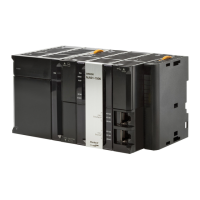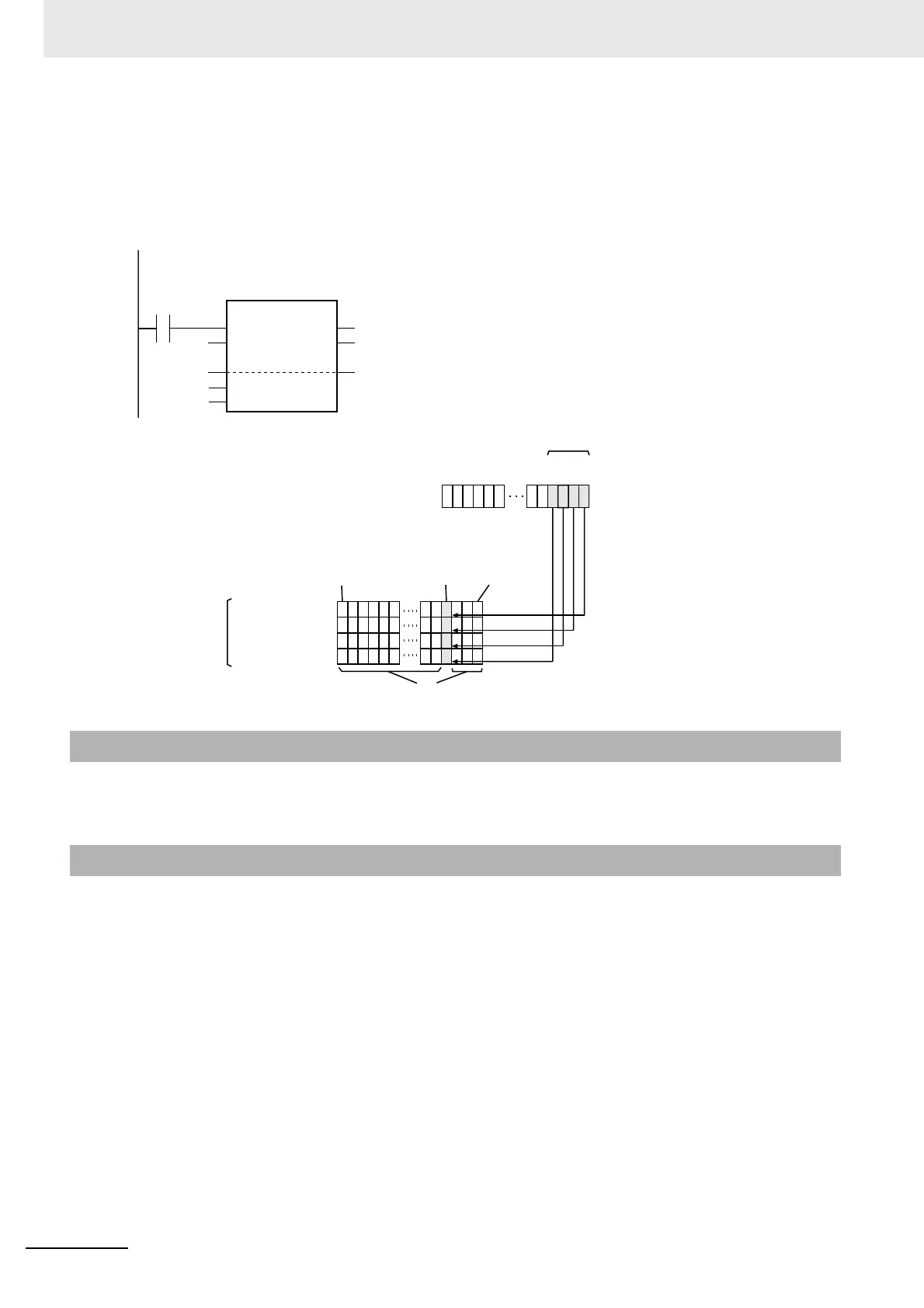2 Instruction Descriptions
2-380
NJ-series Instructions Reference Manual (W502)
First, Size bits are extracted from the least-significant bit of data to convert In. These bits are treated
individually. Then, the bits are stored in conversion result array InOut[] in the Pos bit of the elements
starting from InOut[0]. Size specifies the number of array elements to receive bits. The values of all bits
for which values are not stored are retained.
The following example is for when Pos is USINT#3 and Size is USINT#4.
Use the ColmToLine_** instruction (page 2-377) to extract bit values from the specified position of array
elements and output them as a bit string.
• If the value of Size is 0, the values in InOut[] do not change.
• Return value Out is not used when the instruction is used in ST.
• An error occurs in the following cases. ENO will be FALSE, and InOut[] will not change.
• The value of Size is outside of the valid range.
• The value of Pos is outside of the valid range.
• The value of Size exceeds the array area of InOut[].
• InOut[] is not an array of bit strings.
• An array without a subscript is passed to InOut[].
Additional Information
Precautions for Correct Use
LineToColm(abc, def[1], USINT#4, USINT#3);
LD ST
def[1]
def[1]
abc
USINT#4
USINT#3
LineToColm
EN ENO
In
InOut
Size
Pos
Bit 0
Pos=
USINT#3
Most-significant bit
Bit
0
Most-significant bit
In = abc
Size=USINT#4
Size=USINT#4
Retained
0 0 0 0 0 0
InOut[0]=def[1]
InOut[1]=def[2]
InOut[2]=def[3]
InOut[3]=def[4]
0 0 1 0 1 0
0 0 1 0 0 0
0 1 0 1 0 0
0 0 0 1 1 0
1 1 0 1 0 1
1 0 0 0 0 1
0 0 1 0 1 0
1 0 0 0 0 0
0 0 1 0 0 0

